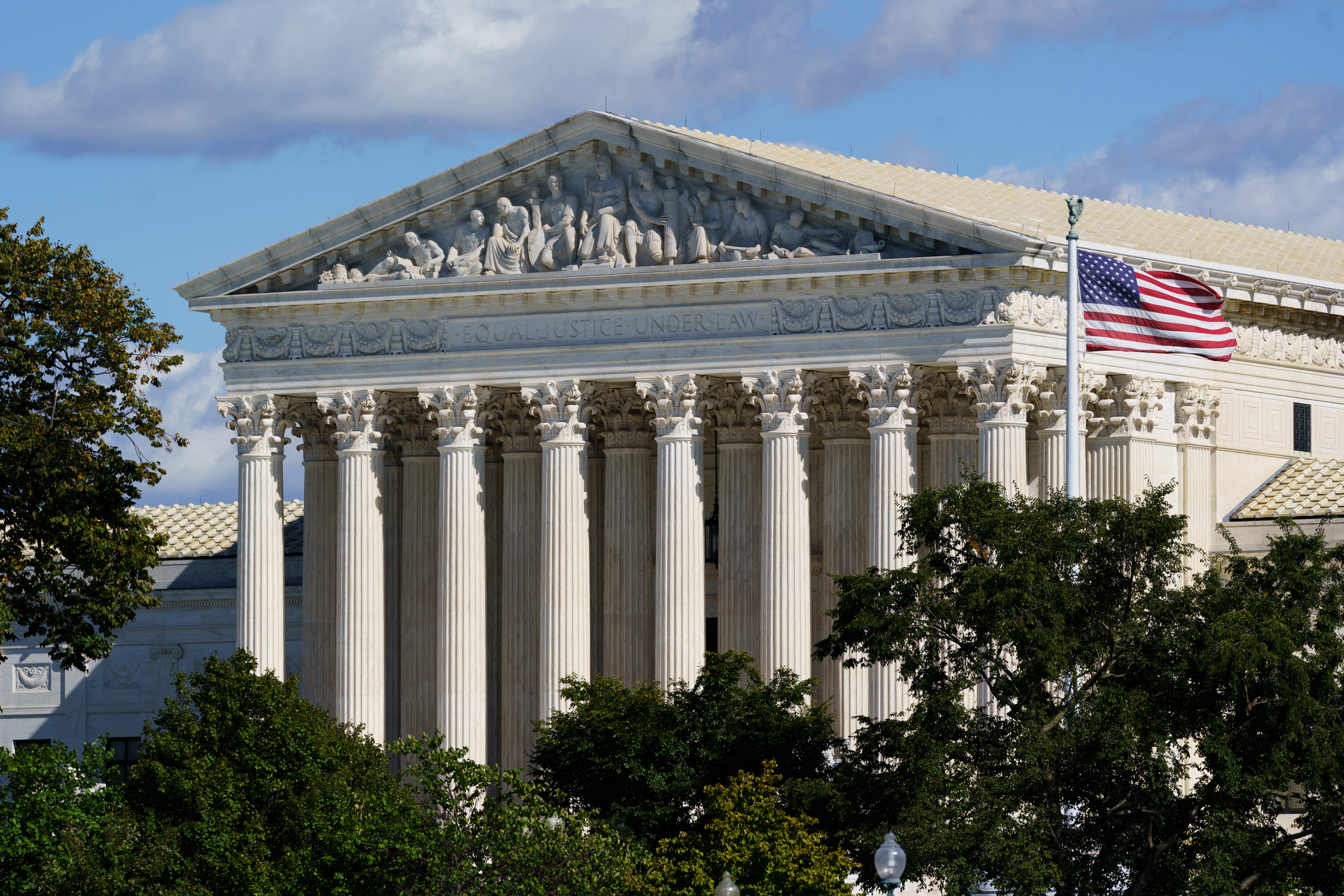Administration makes final pitch to block Texas abortion law
The Biden administration, in its final pitch to block Texas’ ban on most abortions, is warning the Supreme Court that none of its decisions would be safe if it allows the state law to remain in force

Your support helps us to tell the story
From reproductive rights to climate change to Big Tech, The Independent is on the ground when the story is developing. Whether it's investigating the financials of Elon Musk's pro-Trump PAC or producing our latest documentary, 'The A Word', which shines a light on the American women fighting for reproductive rights, we know how important it is to parse out the facts from the messaging.
At such a critical moment in US history, we need reporters on the ground. Your donation allows us to keep sending journalists to speak to both sides of the story.
The Independent is trusted by Americans across the entire political spectrum. And unlike many other quality news outlets, we choose not to lock Americans out of our reporting and analysis with paywalls. We believe quality journalism should be available to everyone, paid for by those who can afford it.
Your support makes all the difference.The Biden administration, in its final pitch to block Texas ban on most abortions, is warning the Supreme Court that none of its decisions would be safe if it allows the state law to remain in force.
The high court is weighing the Justice Department s request to put the law on hold at least until the legal fight over it is resolved. The justices could act any time.
The law has been in effect since September, aside from a district court-ordered pause that lasted just 48 hours, and bans abortions once cardiac activity is detected, usually around six weeks and before some women know they are pregnant.
That's well before the Supreme Court's major abortion decisions allow states to prohibit abortion, although the court has agreed to hear an appeal from Mississippi asking it to overrule those decisions, in Roe v. Wade and Planned Parenthood v. Casey.
But the Texas law was written to evade early federal court review by putting enforcement of it into the hands of private citizens, rather than state officials.
If the law stays in effect, “no decision of this Court is safe. States need not comply with, or even challenge, precedents with which they disagree. They may simply outlaw the exercise of whatever rights they disfavor,” the administration wrote in a brief filed on Friday.
Other state-enforced bans on abortion before the point at which a fetus can survive outside the womb, around 24 weeks, have been blocked by courts because they conflict with Supreme Court precedents.
“Texas should not obtain a different result simply by pairing its unconstitutional law with an unprecedented enforcement scheme designed to evade the traditional mechanisms for judicial review," the administration wrote.
A day earlier, the state urged the court to leave the law in place, saying the federal government lacked the authority to file its lawsuit challenging the Texas ban.
The Justice Department filed suit over the law after the Supreme Court rejected an earlier effort by abortion providers to put the measure on hold temporarily.
In early October, U.S. District Judge Robert Pitman ruled for the administration, putting the law on hold and allowing abortions to resume.
Two days later, a three-judge panel of the 5th U.S. Circuit Court of Appeals put the law back into effect.
The administration also wants the justices to take up and rule on the law's constitutionality, even though the 5th Circuit has yet to do so. The Supreme Court rarely grants such requests.
Texas said it opposed the early review by the high court, but that if the justices agree to the Biden administration's request, they also should use this case to directly overrule the Roe and Casey decisions.
The court already is hearing arguments on Dec. 1 in a case from Mississippi in which that state is calling for the court to get rid of those two rulings.